Filter by
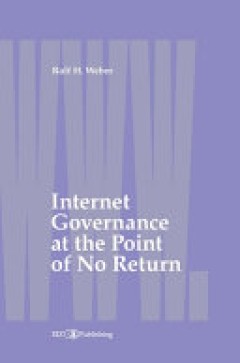
Internet Governance at the Point of No Return
The book begins with an analysis of the technological infrastructure environment and of the manifold regulatory theories developed in the Internet Governance context. Based on this foundation the transnational normative ecosystem is outlined, followed by a detailed discussion of the substantive Internet Governance principles (such as legitimacy, participation, transparency, accountability). The…
- Edition
- 2
- ISBN/ISSN
- 9783038053606
- Collation
- -
- Series Title
- -
- Call Number
- 302.5 ROF i

Artificial Intelligence for a Better Future : An Ecosystem Perspective on the…
This open access book proposes a novel approach to Artificial Intelligence (AI) ethics. AI offers many advantages: better and faster medical diagnoses, improved business processes and efficiency, and the automation of boring work. But undesirable and ethically problematic consequences are possible too: biases and discrimination, breaches of privacy and security, and societal distortions such as…
- Edition
- -
- ISBN/ISSN
- 9783030699789
- Collation
- 124 p
- Series Title
- SpringerBriefs in Research and Innovation Governance,
- Call Number
- 174.90063 STA

The responsibility of intellectuals : reflections by Noam Chomsky and others …
With the publication of ‘The Responsibility of Intellectuals’ half a century ago, Noam Chomsky burst onto the US political scene as a leading critic of the war in Vietnam. Privilege, he argues, brings with it the responsibility to tell the truth and expose lies, but our intellectual culture only pays lip-service to this ideal. The essay has been described as ‘the single most influential p…
- Edition
- -
- ISBN/ISSN
- 9781787355514
- Collation
- x, 138 p. ill;
- Series Title
- -
- Call Number
- 973.91 RES N

A Guide to Sustainable Corporate Responsibility From Theory to Action
This open access book discusses the challenges and opportunities faced by companies in an age that increasingly values sustainability and demands corporate responsibility. Beginning with the historical development of corporate responsibility, this book moves from academic theory to practical application. It points to ways in which companies can successfully manage their transition to a more res…
- Edition
- -
- ISBN/ISSN
- 9783030882037
- Collation
- XIV, 274 p ; ill
- Series Title
- -
- Call Number
- 658.408 GUI
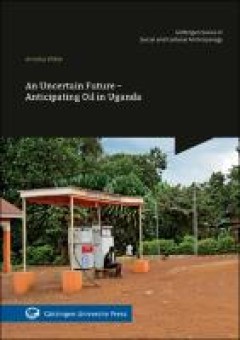
An uncertain future : anticipating oil in Uganda
The discovery of oil in Uganda in 2006 ushered in an oil-age era with new prospects of unforeseen riches. However, after an initial exploration boom developments stalled. Unlike other countries with major oil discoveries, Uganda has been slow in developing its oil. In fact, over ten years after the first discoveries, there is still no oil. During the time of the research for this book between 2…
- Edition
- -
- ISBN/ISSN
- 9783863953607
- Collation
- 277 p. : ill.
- Series Title
- -
- Call Number
- 330 WIT a
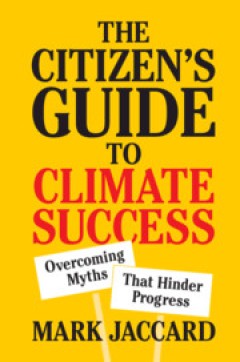
The citizen's guide to climate success : overcoming myths that hinder progress
Sometimes solving climate change seems impossibly complex, and it is hard to know what changes we all can and should make to help. This book offers hope. Drawing on the latest research, Mark Jaccard shows us how to recognize the absolutely essential actions (decarbonizing electricity and transport) and policies (regulations that phase out coal plants and gasoline vehicles, carbon tariffs). Rath…
- Edition
- -
- ISBN/ISSN
- 9781108783453
- Collation
- xiv, 292 p. : ill
- Series Title
- -
- Call Number
- 363.73874 JAC t

A guide to sustainable corporate responsibility : from theory to action
This open access book discusses the challenges and opportunities faced by companies in an age that increasingly values sustainability and demands corporate responsibility. Beginning with the historical development of corporate responsibility, this book moves from academic theory to practical application. It points to ways in which companies can successfully manage their transition to a more res…
- Edition
- -
- ISBN/ISSN
- 9783030882037
- Collation
- xiv, 274p.
- Series Title
- -
- Call Number
- 658.408 DIT a
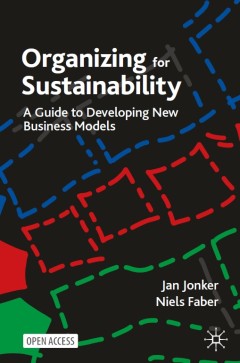
Organizing for sustainability : a guide to developing new business models
This upper-level Open Access textbook aims to educate students and professionals on how to develop business models that have a positive impact on people, society, and the social and ecological environment. It explores a different view of how to organize value creation, from a focus on an almost exclusively monetary value creation to one that creates positive impact through multiple values. T…
- Edition
- -
- ISBN/ISSN
- 9783030781576
- Collation
- xxxv, 242p. : ill.
- Series Title
- -
- Call Number
- 332.673 JON o
Responsibility and language practices in place
his volume includes chapters by junior and senior scholars hailing from Europe, Asia, North America, and Oceania, all of whom sought to understand the social and cultural implications surrounding how people take responsibility for the ways they speak or write in relation to a place—whether it is one they have long resided in, recently moved to, or left a long time ago.;The contributors to the…
- Edition
- -
- ISBN/ISSN
- 9789518582109
- Collation
- 225 p.
- Series Title
- Studia Fennica Anthropologica, 4
- Call Number
- 306.44 RES r
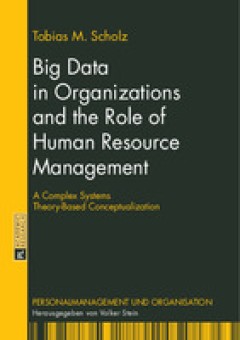
Big data in organizations and the role of human resource manajment: a complex…
Big data are changing the way we work. This book conveys a theoretical understanding of big data and the related interactions on a socio-technological level as well as on the organizational level. Big data challenge the human resource department to take a new role. An organization’s new competitive advantage is its employees augmented by big data.
- Edition
- -
- ISBN/ISSN
- 9783631719039
- Collation
- xvii, 237p.: ill.
- Series Title
- -
- Call Number
- 658.4
 Computer Science, Information & General Works
Computer Science, Information & General Works  Philosophy & Psychology
Philosophy & Psychology  Religion
Religion  Social Sciences
Social Sciences  Language
Language  Pure Science
Pure Science  Applied Sciences
Applied Sciences  Art & Recreation
Art & Recreation  Literature
Literature  History & Geography
History & Geography